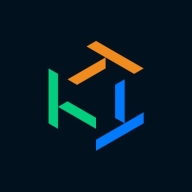

Anomali and Tessian Architect are competing in the cybersecurity category. Anomali appears to have an advantage in threat intelligence, whereas Tessian Architect is stronger in email security.
Features: Anomali provides comprehensive threat intelligence gathering, advanced analytics, and an extensive integration capability. Tessian Architect focuses on email-based threat prevention through real-time analysis, adaptive learning, and effective communication channel protection.
Ease of Deployment and Customer Service: Anomali offers flexible deployment but can be complex. Tessian Architect uses a straightforward, cloud-based setup. Both have efficient customer support, with Tessian Architect's user-friendly setup being more accessible.
Pricing and ROI: Anomali has a higher setup cost due to its extensive features but offers substantial ROI for organizations needing detailed threat insights. Tessian Architect is generally more cost-effective, with significant ROI from advanced email security leading to reduced incident response times and lower risk exposure.
Anomali delivers advanced threat intelligence solutions designed to enhance security operations by providing comprehensive visibility into threats and enabling real-time threat detection and management.
Anomali stands out in threat intelligence, offering an innovative platform that integrates data to identify and analyze threats effectively. It enables teams to streamline threat detection processes and respond to incidents with increased agility. With a focus on accuracy and efficiency, Anomali supports cybersecurity professionals in making informed decisions to safeguard their networks consistently.
What are Anomali's core features?In industries like finance and healthcare, Anomali is implemented to address specific challenges like compliance and data protection. By using this platform, organizations gain the ability to adapt to evolving threats, ensuring robust and adaptable security postures tailored to industry demands.
Tessian Architect is a powerful policy engine for real-time email data loss prevention. It features a combination of the classic elements of DLP policies, as well as intelligent AI-based classifiers that provide custom protection against sensitive data loss.
We monitor all Threat Intelligence Platforms reviews to prevent fraudulent reviews and keep review quality high. We do not post reviews by company employees or direct competitors. We validate each review for authenticity via cross-reference with LinkedIn, and personal follow-up with the reviewer when necessary.